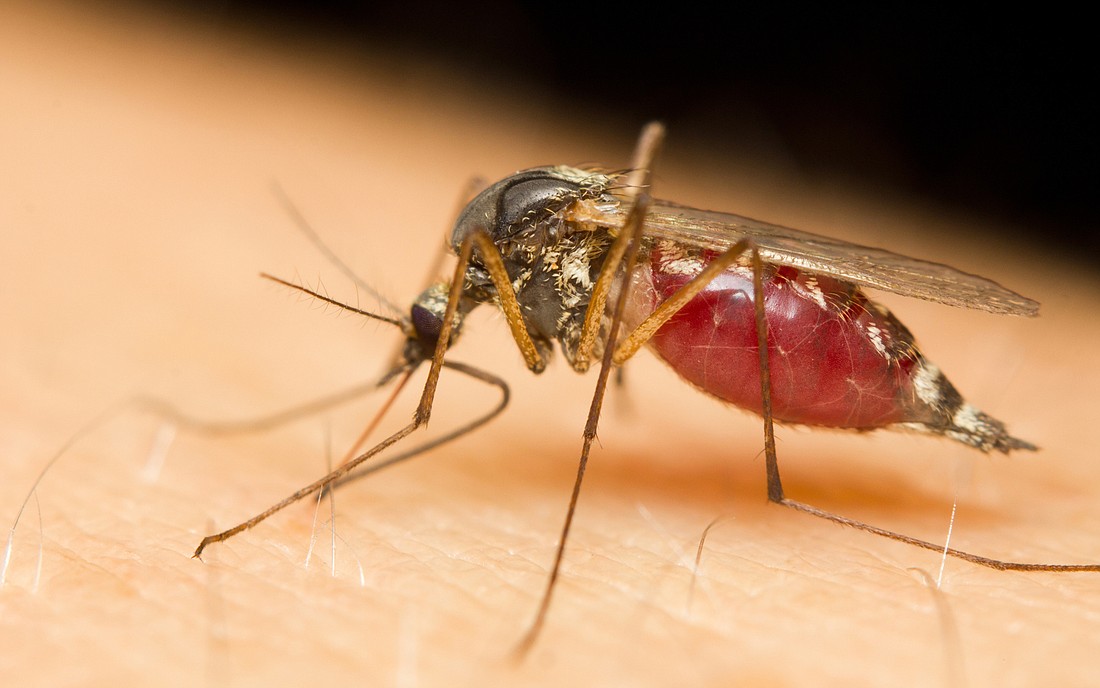- November 19, 2025
-
-
Loading

Loading

Sarasota County is home to more than 30 species of mosquitoes, and 13 of Florida's 80-plus species of mosquitoes can carry dangerous diseases. Although there is no silver bullet to keep mosquitoes from biting, Sarasota health officials identified several measures people can take to keep themselves and their neighbors as safe and comfortable as possible.
Try as you might, but mosquito attacks are inevitable. Is there anything you can do to ease the pain — or the itch — once it has happened? According to Brennan and Greenan, the answer is yes, though their strategies aren’t much different from what Mom used to say.
“The more you itch it, the worse it’s going to be, so that’s the biggest thing — not itching them,” Brennan said. “The more you itch, the more you’re going to aggravate, and if you scratch it to a point where you create an open wound, then you’re causing bigger problems with the possibility of infection.”
Greenan said she typically recommends using a mild hand soap and water to clean the bite and making sure there’s nothing that could cause infection.
“Sometimes the soap helps to remove any sort of irritation,” Greenan said. “So just a mild hand soap, and clean it, then you should be OK. It should help to reduce the itch.”
Insect repellent is the most well-known preventative measure people take to block mosquitoes. But not all repellents are equal.
“We recommend you use an EPA-registered repellant,” said Taylor Greenan, a community outreach specialist with Sarasota County Mosquito Management Services. “The reason why we recommend EPA-registered is that they are safe for use, and they’re effective. So we know that they are safe on your body, and they are also going to be actually repelling mosquitoes.”
The best repellents use one of four active ingredients: DEET, picaridin, oil of lemon eucalyptus and IR3535.
Wade Brennan, Sarasota County Mosquito Management biologist and manager, said EPA-registered repellents are more effective than strategies like bracelets or lanterns.
Steve Huard, spokesperson for the Sarasota County Department of Health, said to put sunscreen on before repellent, so the sunscreen is more functional because it goes into your skin first. Brennan said putting repellent on before sunscreen could block the effectiveness of the repellent because it’s sealed.
Huard, Greenan and Brennan were adamant about eradicating containers holding water if they’re unnecessary. This is because, as Huard said, “Mosquitoes can breed in as little water as a beer bottle cap.” Possible such containers include planters, tires, pool covers, boat covers, buckets, birdbaths and pet bowls.
“We are in a state where there’s tons of travel, international travel, on a regular basis, so we’re always worried about our container mosquito population that can transmit either Zika, dengue or chikungunya,” Brennan said. “We really need the public to take action and make sure they don’t have those containers around the house that are producing these kinds of mosquitoes.”
Huard and Brennan also mentioned seemingly small details to minimize risk, such as making sure windows have screens and being careful during sunset because that hour or two is the worst time for mosquito activity.
The Florida Department of Health advises to cover up cribs, strollers or baby carriers with mosquito netting and for people to cover their skin with long-sleeved shirts and long pants. Clothing treated with permethrin, which is a mosquito-killing insecticide, will give you even better protection from the insects. People can buy permethrin-treated clothing at most retail outlets and online via websites like Amazon.
Brennan issued a final warning as to why it is vital that people are careful during the summer.
“We are just starting to enter in our normal West Nile virus season and St. Louis encephalitis season,” he said. “So it’s really important for people to take these precautions now more than ever. When it’s winter, spring, those are times when it’s always important, but now the risk blows up from here to November.”